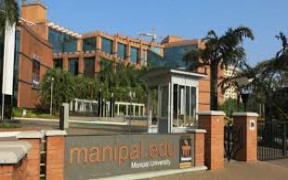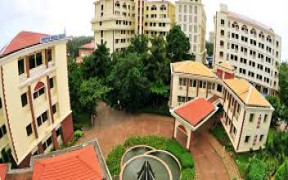Why Choose MSc Renal Dialysis Technology in Bangalore
Bangalore is a flourishing healthcare and education hub with advanced nephrology centres, research labs, and multi-specialty hospitals. Opting for an MSc Renal Dialysis Technology College in Bangalore means gaining access to real-world dialysis units, state-of-the-art equipment, and experienced mentors. This concentration helps students build strong technical expertise and clinical confidence in renal replacement therapies, preparing them for in-demand roles in dialysis care.
What Makes the Best MSc Renal Dialysis Technology Colleges in Bangalore Stand Out
The Best MSc Renal Dialysis Technology Colleges in Bangalore distinguish themselves through:
-
Comprehensive Curriculum: Advanced modules covering renal physiology, dialysis principles, hemodialysis, peritoneal dialysis, water treatment & quality standards, vascular access care, infection control, and patient monitoring.
-
Extensive Practical Training: Hands-on experience with dialysis machines, dialyzers, water purification systems (RO and deionizers), BFR settings, disinfection protocols, and catheter care.
-
Simulation and Control Lab Setup: Fully equipped labs simulate real dialysis sessions with error tracking, quality checks, and patient safety drills.
-
Clinical Rotations in Renal Units: Internships in hospital dialysis units enable exposure to multiple patient types—acute, chronic, pediatric, and diabetic.
-
Specialised Faculty & Mentors: Experienced dialysis technologists, nephrology nurses, and renal clinicians guide clinical skills, troubleshooting, and quality measures.
-
Strong Hospital Partnerships: Tie-ups with leading nephrology centres, transplant units, and community kidney care programs for immersive training and placements.
-
Placement and Career Support: Dedicated placement cells focus on roles as dialysis technologists, kidney care specialists, biomedical technicians, and educators.
Eligibility & Admission Process
Entry into top MSc Renal Dialysis Technology Colleges in Bangalore generally requires:
-
A bachelor’s degree in Medical Laboratory Technology, Renal Dialysis Technology, Life Sciences, or allied health stream, with a minimum of 50% aggregate.
-
Selection may include merit evaluation, interviews, aptitude assessments, or subject-level entrance exams.
-
Admissions occur between May and July, with classes commencing in July or August.
Curriculum Structure & Learning Outcomes
This two-year MSc Renal Dialysis Technology course combines theoretical learning, laboratory practice, and clinical exposure:
Year 1 – Foundation & Practice
-
Advanced Renal Physiology & Pathophysiology
-
Dialysis Principles: Hemodialysis & Peritoneal Dialysis
-
Dialysis Machines, RO Systems & Quality Control
-
Water Treatment, Disinfection Methods & Safety
-
Catheter/Vascular Access Care & Maintenance
-
Infection Control and Aseptic Maintenance
Year 2 – Clinical Immersion & Research
-
Clinical Placement in Dialysis Centers (Chronic/Emergency/Neonatal)
-
Machine Workflows, Monitoring, Alarms & Troubleshooting
-
Patient Assessment: Vitals, Biochemical Monitoring, Complication Management
-
Emergency Procedures: Hypotension, Air Embolism & Disequilibrium Syndrome
-
Research Methodology & Dialysis Quality Assurance
-
Thesis Project & Case-Based Presentations
Graduates are skilled in managing dialysis units, troubleshooting technical issues, supporting patient care, and ensuring adherence to quality and safety protocols.
Career Opportunities & Salary Outlook
Graduates from MSc Renal Dialysis Technology Colleges in Bangalore can pursue careers such as:
-
Senior Dialysis Technologist in hospitals or standalone centers
-
Clinical Coordinator in dialysis units
-
Water Treatment & Equipment Quality Specialist
-
Infection Control Officer in nephrology units
-
Renal Care Educator or Nurse Assistant
-
Research Associate in kidney disease labs
-
Biomedical Application Trainer for dialysis equipment firms
-
Telehealth Technician for dialysis patient monitoring
Salary Outlook:
Entry-level technologists earn around ₹4–6 LPA. With experience and certifications, mid-career professionals can expect ₹7–10 LPA, while supervisory or academic roles may reach ₹12–15 LPA.
How to Choose the Best MSc Renal Dialysis Technology College in Bangalore
Evaluate colleges based on:
-
Accreditation & Professional Recognition: Verify affiliation with reputed universities and recognition under national allied health standards.
-
Treatment Lab Setup: Fully functional dialysis labs with RO systems, water & chemical testing facilities are essential.
-
Clinical Exposure: Insist on adequate rotations in modern dialysis units, including emergency HD and pediatric cases.
-
Faculty Credentials: Qualified dialysis technologists, nephrology nurses, and faculty with real-life dialysis experience are a must.
-
Placement & Alumni Success: Alumni working in leading units or starting dialysis programs highlight institutional quality.
-
Student Feedback: Real feedback gives insight into practical exposure, equipment handling and clinical learning environment.
-
Research & Certification Support: Preference for institutions promoting thesis work and facilitating certifications like CCHT recognition.
Fee Structure & Financial Assistance
Annual fees for MSc Renal Dialysis Technology Colleges in Bangalore typically range from ₹1 Lakh to ₹2.5 Lakhs, based on infrastructure and clinical partnerships. Support options often include:
-
Merit-based scholarships or fee waivers
-
Healthcare professional concessions
-
Education loan facilitation and installment payment plans
Tips to Strengthen Your Application
-
Highlight any healthcare or laboratory experience in dialysis or related environments.
-
Obtain certifications in dialysis practices (e.g., AAMI, renal technician courses) or infection control.
-
Draft a strong statement of purpose showcasing your interest in renal therapy, patient outcomes, and clinical expertise.
-
Refresh knowledge in renal physiology, machine workflows, catheter care, and safety protocols before interviews.
-
Visit dialysis labs during open days to evaluate infrastructure, faculty engagement, and clinical suitability.
Final Thoughts
An MSc in Renal Dialysis Technology in Bangalore opens a pathway to an impactful career delivering vital kidney care. With in-depth clinical training, strong lab experience, and academic rigor, graduates are prepared for leadership roles in dialysis units, QA teams, biomedical support, and education. Choosing one of the Best MSc Renal Dialysis Technology Colleges in Bangalore ensures you gain industry-aligned education, skilled mentorship, and career preparedness in a critical allied health domain.
List of Best MSc Renal Dialysis Technology Colleges in Bangalore
There are nearly 4 best private MSc Renal Dialysis Technology colleges in Bangalore, provide MSc Renal Dialysis Technology.
Found 4 Colleges
Manipal University Bangalore
Bangalore, Karnataka | Established: 1953
Affiliations: Deemed University | Accreditations: NAAC A++
MVM Group of Institutions Bangalore
Bangalore, Karnataka | Established: 2004
Affiliations: Private Institute | Accreditations: -
Yenepoya University Mangalore
Mangalore, Karnataka | Established: 1992
Affiliations: Deemed University | Accreditations: NAAC A+
Yenepoya School of Allied Health Science Mangalore
Mangalore, Karnataka | Established: -
Affiliations: Private College | Accreditations: NAAC A+
Enquire Now





